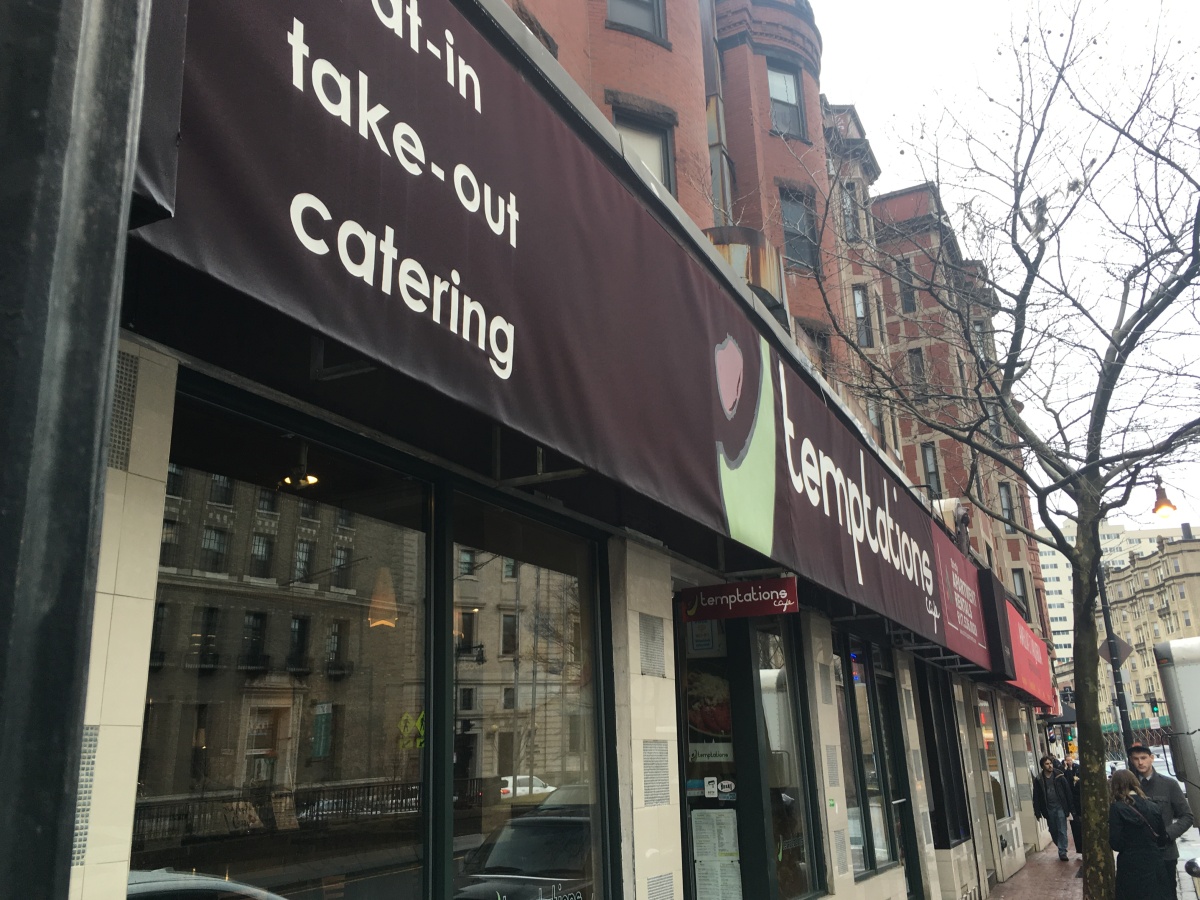Name: Temptations Cafe
Details:
313 Huntington Ave,
Boston, MA, 02115
http://places.singleplatform.com/temptations-cafe-2/menu
Phone: 617-266-6080
Hours:
Monday-Friday: 8 a.m. – 8 p.m.
Saturday: 10 a.m. – 7 p.m.
Sunday: 10 a.m. – 5 p.m.
Inside:
Located conveniently along Huntington Avenue by the Northeastern University stop on the Green Line, and across from Northeastern’s East Village dormitory, Temptations Cafe has long been a go-to destination for Huskies in search of a caffeine fix.
With its standard-issue, 12-oz drip coffee priced affordably at $2.25, and a menu stuffed with breakfast wraps and lunch sandwiches, it’s not that surprising to learn, via barista Anna Yuschenkoff, that the shop (one of two – another location has opened in Brookline) stays busy.
“It’s busiest especially when Northeastern kids get out of classes for lunch,” says Yuschenkoff, as – right on cue – a pack of six students rush through the doorway in hopes of securing lattes. At street level, the shop is both handicapped-accessible and extremely fortuitously placed for students on their way to the Marino gym and health center just a block up Huntington.
Yuschenkoff believes the atmosphere of the place plays a role in its popularity. “It’s relaxed and casual, but still good quality, which isn’t that common,” she says.
Temptations is compactly sized, with granite-tile flooring and polished wooden furniture. There are few outlets, which aligns with the barista’s perception of the coffeeshop as a via point for students, rather than a traditionally sit-down estbalishment. “Our customers are great,” Yuschenkoff says, juxtaposing them against the “grumpier” coffee aficionados who crowd nearby Starbucks and Dunkin’ Donuts locations throughout the day.
Caffeine fixes aside, customers can also feast on a variety of food items. Decadent “Sweet Temptations” options include peanut-butter-and-jam and nutella-and-banana sandwiches; those with less of a sweet tooth can go for salads, soups, cold sandwiches, cold wraps, or hot-off-the-press paninis that include options such as pesto chicken and fresh mozzarella. None of the options clock in at more than $10, a boast rival coffeeshop Pavement cannot claim to echo. Yuschenkoff’s personal favorite? “That’d be the hummus,” she says, laughing. “On everything. Or by itself. Just the hummus.”











